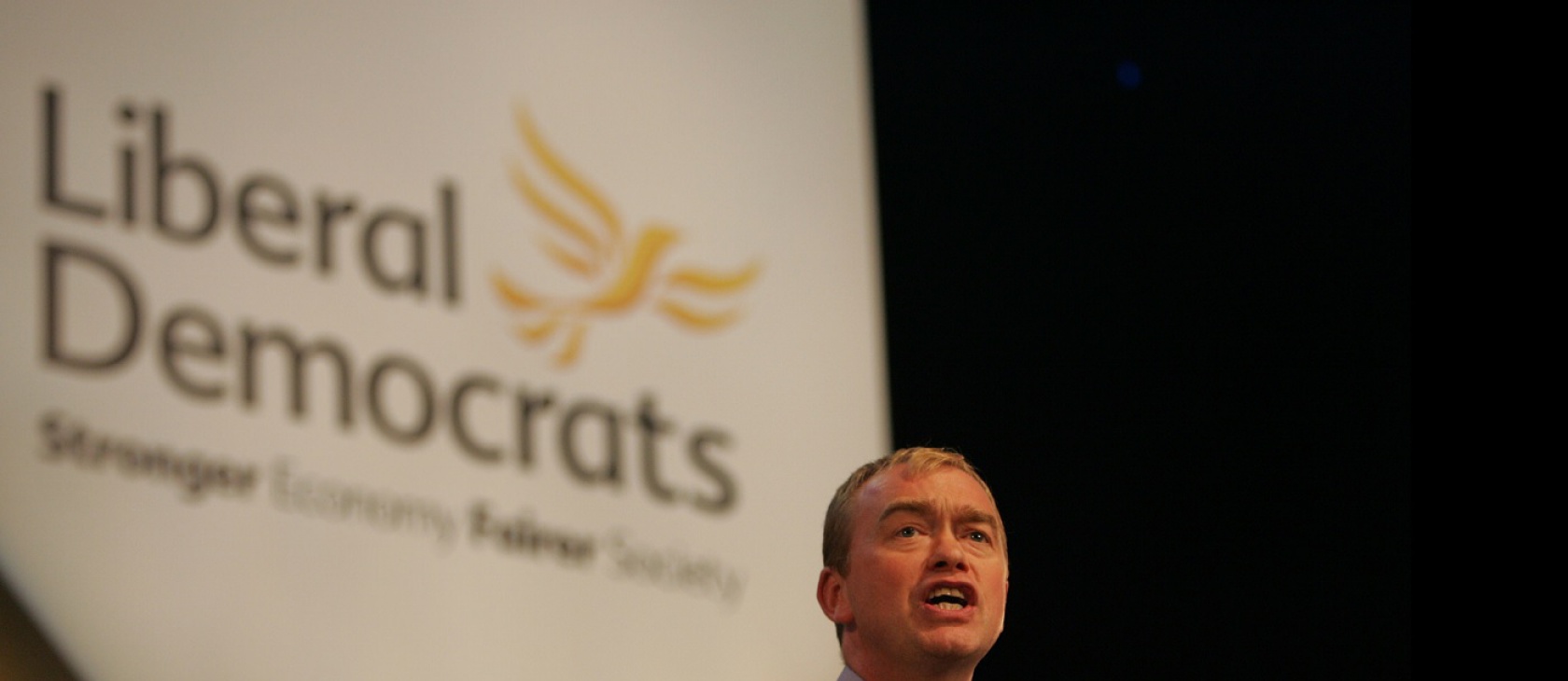To be a political leader, especially of a progressive liberal party in 2017, and to live as a committed Christian, to hold faithfully to the Bible’s teaching, has felt impossible. I seem to have been the subject of suspicion because of what I believe and who my faith is in – in which case we are kidding ourselves if we think we yet live in a tolerant, liberal society.
Tim Farron's recent resignation speech was about as bitter and inflamed as politics gets in Britain's centrist party, the eminently reasonable and slightly dull Liberal Democrats. Mr. Farron, an evangelical Anglican from a working-class Lancashire background, had taken over the third party after its near-destruction in the 2015 election. Previous leader Nick Clegg – a multilingual, part-Dutch, Westminster school-educated former MEP married to a Spanish lawyer – represented almost a caricature of the global elites written about by Christopher Lasch. Farron came from a much older English left-wing Christian tradition that especially flourished in the country's rocky fringes and became the basis of the Liberal and later Labour parties.
Farron seemed to be in a good position coming out of the divisive and sometimes painful referendum last year, representing the disappointed 48 percent of British voters who opted to remain in the European Union. Yet Liberal Democrats have continued to sink. During the recent election, much of the media seemed far more interested in Mr. Farron's views on homosexual sex than the trifling matter of whether the British economy sinks. Over the course of the campaign, he was repeatedly asked whether he believed engaging in homosexual intercourse was a sin, his reply of “we’re all sinners” failing to satisfy his interrogators. Theresa May, who comes from a more mainstream Anglican tradition which is perhaps more in tune with the times, confidently replied no.
Eventually Farron, who voted in favor of same-sex marriage in 2013, gave in after two weeks of questioning; not quite Foxe's Book of Martyrs material then.
Mr. Farron's views on homosexuality may be out of step with the majority of the electorate, and perhaps traditional Christian teaching really could be viewed as far away from the Overton Window; certainly most British people under the age of 40 just find Farron's views just weird.
Across Europe, the range of acceptable opinions in the professions has shrunk.
Smelling blood, Labour Party activists then managed to find a decade-old interview in which Mr. Farron told an obscure magazine associated with the Salvation Army that he thought abortion was “wrong” and that “personally, I wish I could argue it away.” Once again under fire from the media, he rather unheroically replied, “The quote on abortion is not a publication I’ve ever heard of, or read, or seen!”
Nowhere among the traditional party of liberty was there any sense that people might hold a range of views on a highly contentious and divisive subject, one on which 43 percent of the public hold views not dissimilar to Mr. Farron's.
Mr. Farron was criticised for failing to stand up for his beliefs. Certainly he did not exactly appear as a latter-day Thomas More or Hugh Latimer, but perhaps he thought it was more important to prevent Britain leaving the European Union – an inner moral dilemma that St. Thomas More might have appreciated.
But his failure to stand up for those beliefs sets a troublesome precedent, for if powerful politicians aren't allowed to hold unpopular beliefs – ones that do not affect their voting record – what hope is there for the rest of us? One of the disturbing trends of our age is that many young people feel that they cannot reveal their opinions in public, and that (perhaps internalising it) politics should be kept private. This is partly because social media and campuses are dominated by angry radicals who rarely meet dissenting opinions. But young people also suspect, perhaps rightly, that their employment prospects might be affected if they hold the wrong view.
The Liberal Democrats were born of a merger between the Liberal Party and the moderate Labour breakaway the Social Democratic Party (SDP). Although Labour Prime Minister Harold Wilson famously stated that the Labour Party owes more to Methodism than Marx, the Liberals in particular developed out of Nonconformism and a core of nineteenth century activists who wanted to both eliminate poverty and save souls. My father's English family mostly came from the Liberal tradition; many were from the East Midlands, an especially strong Parliamentary area during the civil war which also saw heavy Puritan migration to the colonies, and they were firm nonconformists. Many of them moved to industrial parts of London and Liverpool to set up chapels, build schools for the poor, and get the locals to abstain from alcohol. Barred from the universities until the mid-nineteenth century, the freedom of conscience was precious to them.
This strain of Protestantism gave birth to British Liberalism, but modern progressivism is more widely a sort of Christian heresy (even Mr. Farron's reference to the current year is a progressive idea combining Christian eschatology and Marxism). It sprang up with the cultural revolution of the 1960s, which for a while led to two competing cultural norms in the Western world: traditional European mores – which were heavily Christian – and a more secular belief system of progress, with its devotion to equality, the protection of minorities, and a new conception of human rights. For a while, it seemed possible in Europe to accommodate people with a range of views. But a tipping point came around the millennium, when the new faith became too powerful – especially at the top of society where attractive, high-status ideas were enthusiastically adopted in academia and the media.
And so across Europe, the range of acceptable opinions in the professions has shrunk. In Great Britain, a number of people have faced disciplinary action at work or even been investigated by police for their views on controversial issues such as sexuality, including a Christian from Manchester who was found guilty of gross misconduct by his publicly funded housing association for writing that allowing gay weddings in churches was an “equality too far.” He had posted this opinion on Facebook and, after a disciplinary hearing, he was downgraded from his £35,000-a-year ($44,000) managerial job to a much less senior £21,000 ($27,000) role.
Many now fear that the West's period of pluralism will turn out to be just an historical anomaly.
A far bigger worry concerns the medical profession, since this by definition touches on a number of conscience issues. In the UK, two Glasgow midwives lost their case in 2014 after refusing to carry out abortions, and more recently in Sweden midwife Ellinor Grimmark was denied employment because of her refusal to carry out the procedure. Soon after the case arose, a Swedish minister argued that “one who refuses to participate in abortions is an extreme religious practitioner,” mentioning ISIS in the next sentence. After all, in their view, Christian extremists don't like abortion and Muslim extremists also have rather conservative views about female sexuality – so, what's the difference?
In fact, in the UK politicians seem determinedly optimistic that the huge problem with radicalised Muslims, some 23,000 of whom are considered of concern to the security services, can be overcome with something called “British values.” When then-Prime Minister David Cameron defined this concept in 2011, he stated that “a genuinely liberal country … believes in certain values and actively promotes them: freedom of speech, freedom of worship, democracy, the rule of law, equal rights regardless of race, sex, or sexuality. It says to its citizens, ‘This is what defines us as a society: to belong here is to believe in these things.’” Bed and breakfast owners who refuse to accept same-sex couples would certainly be outside of this, as would the entire Roman Catholic Church and much of the Anglican. More troubling, it was never accepted that to “belong here” meant believing in anything – that's the whole point of free societies.
Roman Catholics, of course, are a bit more historically sensitive about Test Acts. There was a time when having allegiance to the Bishop of Rome by definition put one outside of the political community. It took a long, long time, and many dead bodies, before England was able to have genuine pluralism. Many now fear that period of pluralism will turn out to be just an historical anomaly.
(Photo credit: Liberal Democrats. CC BY-ND 2.0.)




